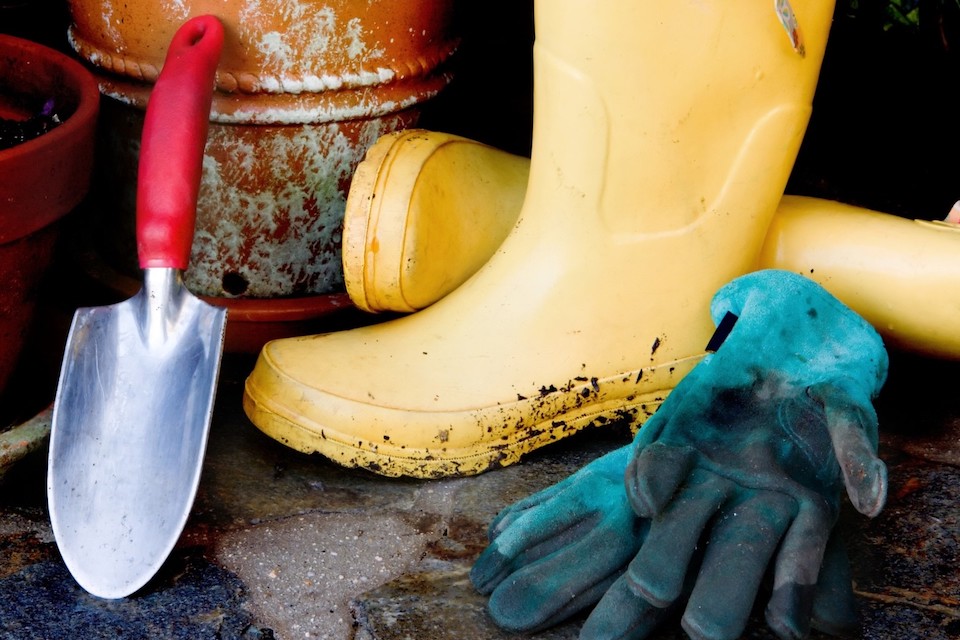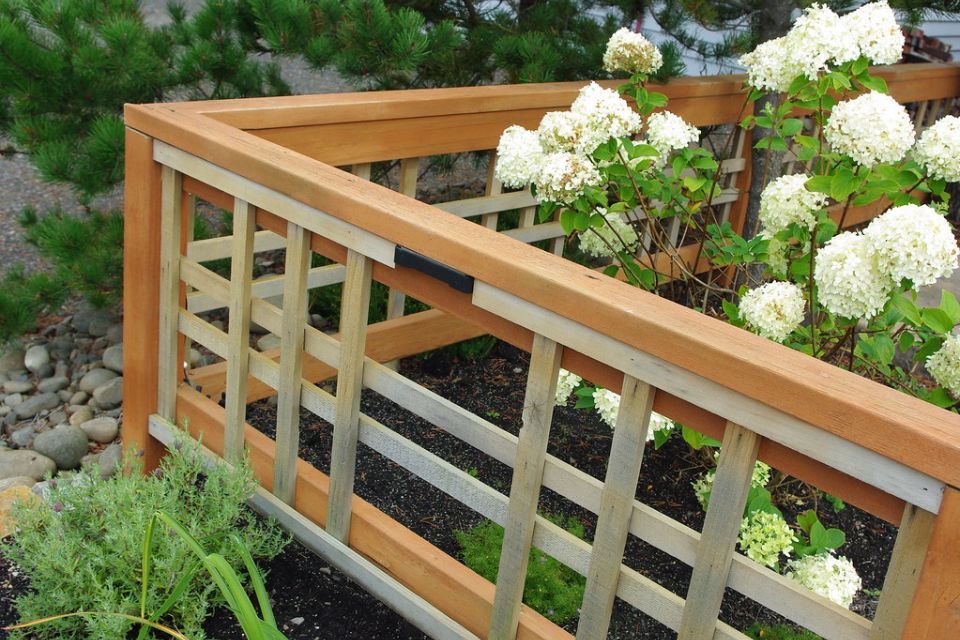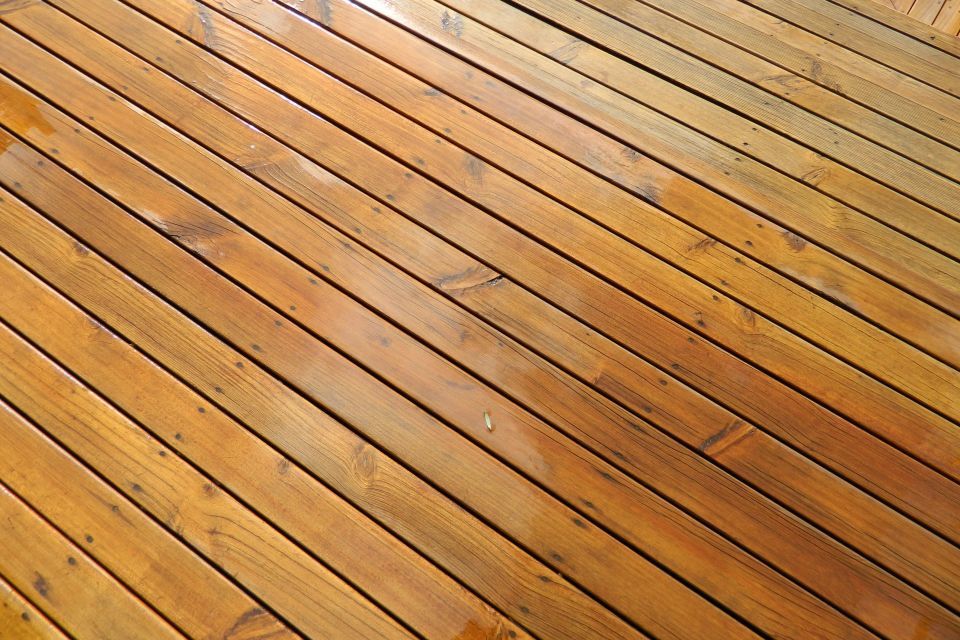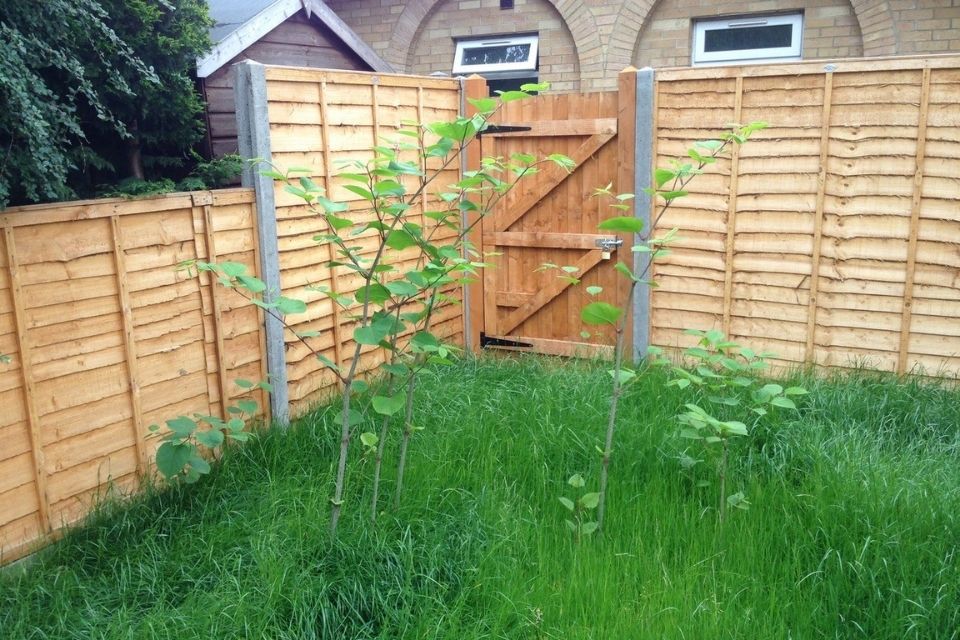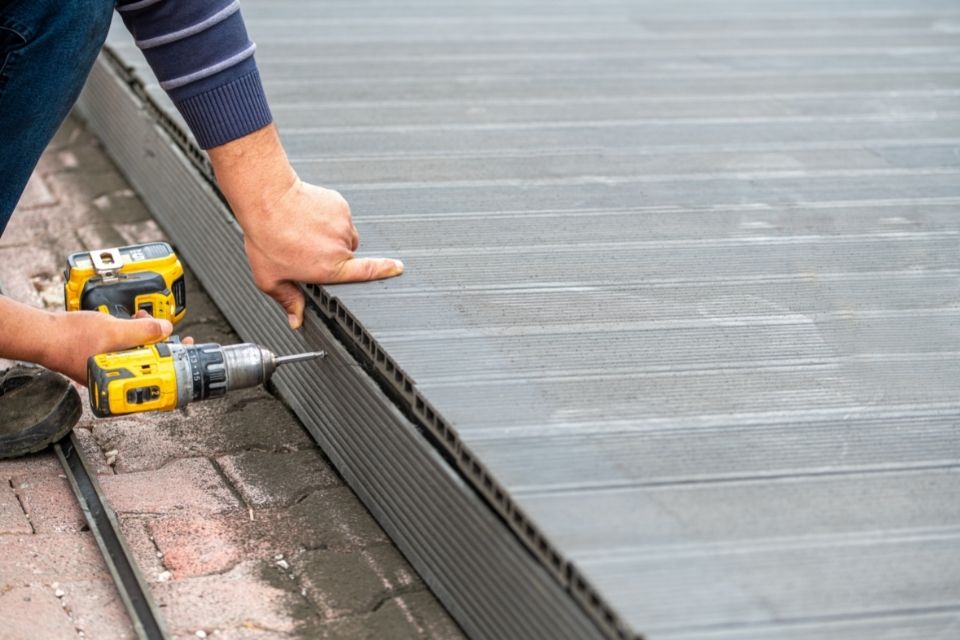How Much Does Garden Clearance and Waste Removal Cost?
The cost of having garden debris removed will range from £70 to £200. The cost, however, will vary primarily based on the size of your garden and the amount of waste that needs removing.
The cost of green waste clearance is estimated to be around £100 - £150. The same can be said for the removal of brown waste.
It will cost approximately £0.15 per kg to have soil trash collected.
In terms of soil garden waste disposal costs, you should expect the following:
- 50kg of waste - £7 - £10
- 100kg of waste - £15 - £20
- 250kg of waste - £37.50
- 500kg of waste - £75 - £80
- 1000kg of waste - £150 - £200
- 1500kg of waste - £225 - £250
Garden Waste Removal Prices
There are alternative methods for removing garden waste, including:
Skip Hire
One alternative is to rent a skip and then fill it with your garbage. The cost of hiring a skip ranges from £70 to £450, depending on the size of the skip required.
You can take your time with the work and, if necessary, dispose of additional rubbish at the same time.
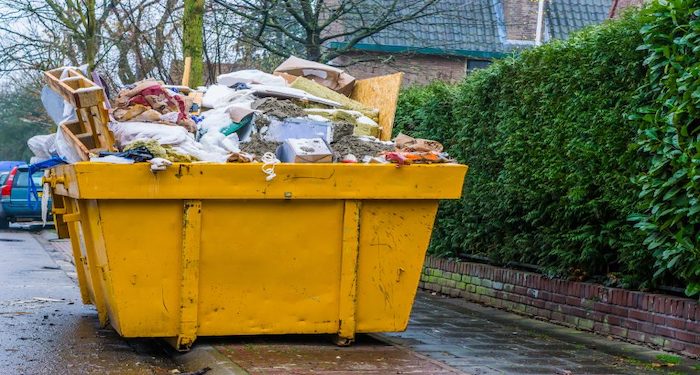
The price will depend on the size of the skip. The below table sets out the average cost of different size skips.
| Skip SIze | Cost |
|---|---|
| 2 yards | £70 - £100 |
| 3 yards | £75 - £110 |
| 4 yards | £100 - £260 |
| 6 yards | £120 - £275 |
| 8 yards | £160 - £370 |
| 10 yards | £180 - £400 |
| 12 yards | £220 - £440 |
| 14 yards | £230 - £450 |
If you need to dispose of a modest amount of garden waste regularly, check to see if your local council offers a garden waste collection service. These are either free or cost between £150 and £200 a year.
When you hire a skip, you will be given a certain amount of time to use it. You will have to pay more if you require it for a longer period. However, renting your skip for a shorter period can often save you money. It's a good idea to discuss this with the skip rental provider.
Several factors influence the cost of garden clearance and rubbish collection, including your location. For example, if you live on a busy industrial estate, your expenses may be lower than if you live in a more remote rural area.
The average cost in Manchester is roughly 10% to 12% cheaper than the national average. Similarly, prices in Liverpool are significantly lower than the rest of the country, with hiring rates almost 20% lower than the national average. Skip hire in Glasgow is around 10%-20% lower than the national average for hiring a skip.
The southeast, on the other hand, has higher rates than the rest of the UK. The cost of living in London is around 12-17 per cent more than the national average. Therefore, it is more expensive to hire a skip in London.
Removal Cost by Volume
The type of trash may also have an impact on the price, as anything that requires specialised treatment, transportation, or disposal is more expensive to manage. Therefore, you will be charged based on the amount of waste that needs to be removed.
The cost of garden waste clearance is sometimes calculated by the volume of waste, as this may require more than one journey or a larger van.
Here are the costs you should consider when hiring waste removal companies that charge by volume:
| Amount of Van Space | Volume (M3) | Cost |
|---|---|---|
| One sixteenth | 0.75 | £45 - £55 |
| One eighth | 1.5 | £70 - £80 |
| One quarter | 3 | £90 - £100 |
| Three-eighths | 4.5 | £120 - £130 |
| One half | 6 | £140 - £150 |
| Five-eighths | 7.5 | £165 - £175 |
| Three quarters | 9 | £200 - £210 |
| Seven eighths | 10.5 | £220 - £230 |
| Full | 12 | £240 - £250 |
Removal Cost by Weight
Some garden clearance companies may set their rates based on the weight of the rubbish. The expenses per tonne can be reduced if you have a high trash disposal requirement and can consolidate services.
Therefore, when you hire a business to remove your trash, the heavy stuff like dirt and bricks will be charged by weight.
Here is a table on the average costs of heavy waste:
| Weight | Cost |
|---|---|
| 100 KG | £14 - £16 |
| 500 KG | £70 - £80 |
| 1 tonne | £140 - £160 |
| 1.5 tonne | £210 - £240 |
| 2 tonne | £280 - £320 |
- How Much Does Garden Clearance and Waste Removal Cost?
- What are the Supply Costs of Garden Waste Removal and Clearance?
- What are the Additional Costs of Removing Garden Waste?
- Tradesmen Costs for Garden Waste Removal
- How Long Does It Take to Clear Garden Waste?
- Types of Garden Waste Removal
- FAQs
- Sources
What are the Supply Costs of Garden Waste Removal and Clearance?
If we exclude the expense of labour, you might save anywhere from £30 to £200, depending on how big the task is and how much rubbish you need to remove from your garden.
If you have a lot of yard garbage to get rid of, you'll probably need to hire a skip, in which case the charges are the same as the ones indicated above.
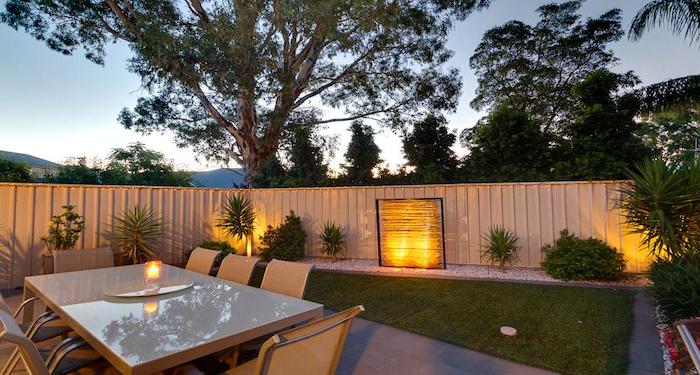
A leaf blower can cost anything from £50 to £100. If you need to buy a new lawnmower, expect to spend between £50 and £500, though some can cost up to £1000.
A hand trowel will likely cost between £5 and £10; a pruner will cost between £10 and £230, and a hedge trimmer would cost between £30 and £60.
The total cost of garden garbage disposal, whether done by hand or by experts, is determined not only by the type of waste but also by the size of the garden and the convenience of access.
The table below sets out the supply costs with no labour charges included.
| Supply | Cost |
|---|---|
| Leaf Blower | £50 - £100 |
| Lawn Mower | £50 - £1000 |
| Hand Trowel | £5 - £10 |
| Pruner | £10 - £230 |
| Hedge Trimmer | £30 - £60 |
What are the Additional Costs of Removing Garden Waste?
When it comes to trash collection charges, there are a few elements that can drive up the price.
It's also a good idea to think about other jobs you can undertake at the same time, as they'll likely generate extra garden debris. As a result, combining multiple jobs would be far more cost-effective way of getting rid of your garden waste.
Here are some of the most common jobs you may wish to consider:
Landscaping
If you want to improve the appearance of your exterior, you need to think about the expense of landscape gardening jobs such as:
- Laying new turf
- Constructing a new decking area
- Adding fencing
- Building new garden wall
- Installing a shed
Professional landscapers charge between £100 and £180 per day or between £8 and £15 per hour for lesser works.
The price of landscaping is also determined by the timeframe, since the longer landscapers spend on a job, the more expensive it will be. Turfing takes between 4 to 8 hours for a small 10 square metre garden and up to 3 days for a shed larger than 100 square metres.
Landscapers should take one to two days to install eight fence panels for a new fence, but any more than that could take up to five days.
Hedge Removal
Hedge removal prices differ depending on the size of the job. The bigger the job, the longer it will take, therefore will cost more in labour. Here is a breakdown of costs based on the size of the hedge that needs to be removed:
- Small Hedge Removal - £100 to £170
- Medium / Large Hedge Removal - £225 to £425
- 10-metre Hedge Removal - £125 to £175
- 20-metre Hedge Removal - £175 to £225
- 30-metre Hedge Removal - £225 to £275
- 40-metre Hedge Removal - £275 to £325
If you just need a hedge to be trimmed back, expect to pay between £150 to £350.
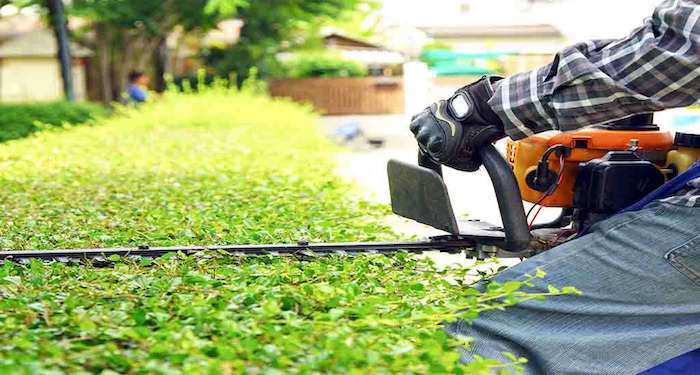
The size and type of hedge, the number of tradespeople on the job, ease of access, and whether the contractor charges per hour or per metre, can vary costs dramatically.
Most hedge maintenance work typically ranges from £40 to £70 per hour for labour or £2.50 and £5 per metre.
As previously stated, the length of the project typically influences the labour cost and is thus quite important to the overall cost of such work. A small hedge takes half a day to a day to remove on average. A medium to large hedge, on the other hand, will likely take between three-quarters of a day and two days to clear.
Laying Turf
Before the new turf can be installed, ground preparation may be required. This could involved jobs such as removing the or levelling your garden to give a flat surface to work with.
The costs involved for laying a new lawn will depend on the type of grass you choose For example:
- Dwarf ryegrass turf costs between £2 and £7 per m2
- Creeping red fescue turf costs between £3 and £6 per m2
- Annual meadow grass turf costs between £10 and £20 per m2
It usually takes around 4 hours to 3 days for a tradesperson to lay turf. The length of time depends on the size of your garden, amount of grass that needs to be laid and ease of accessibility.
Fence Installation Cost
If your old fences are broken, or you want to improve your home's seclusion, you should think about the cost of fence panels and posts.
The cost of installing a garden fence varies based on the size and type of fence panels you select. As a result:
- A 4-foot fence will cost between £550 and £1,100
- A 6-foot fence will cost between £700 and £1,700
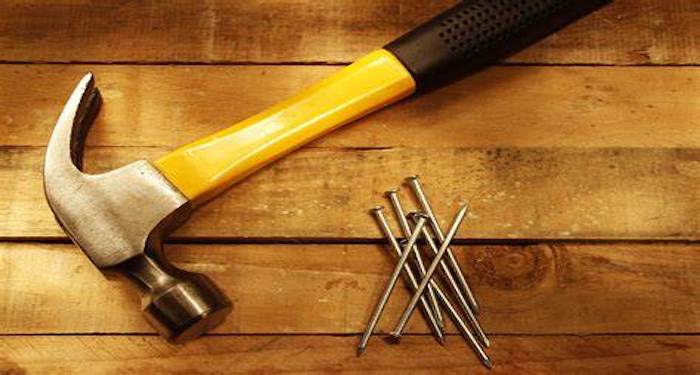
A fence installer's average daily rate is roughly £300 to £400 per day. Expect to pay roughly £750 to £1200 in labour for fencing that is around 200 feet long. Some fence contractors may charge an hourly rate ranging from £7 to £15.
The time required to complete the job will vary pricing. The length of time will be determined by the size of the fence and the materials needed. A 36-foot fence system for example, should take about one day to install, whereas a 200-foot fence installation could take two to three days.
Tradesmen Costs for Garden Waste Removal
Garden work can differ in so many ways it is hard to set a specific cost against it. Most gardeners charge by the hour which increases depending on how much work is involved. For example, hourly fees for general cleaning can range from £15 to £20 per hour whereas hedge cutting can cost between £90 - £120 per hour for.
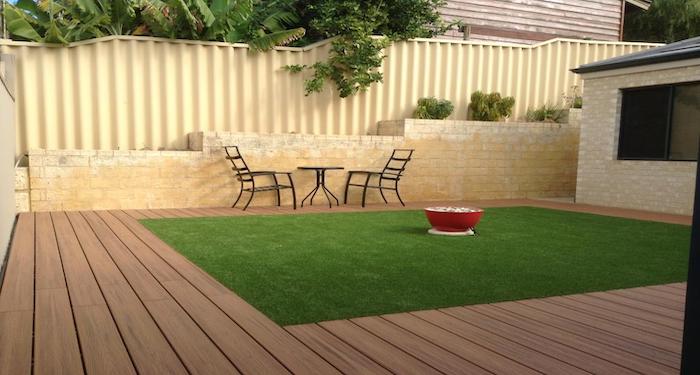
Gardener labour costs are also affected by the area you live and the size of the company you choose to carry out the job. Large companies in the north of England charge roughly £30 - £35 per hour, whereas a medium-sized garden maintenance company can charge around £45 - £50 per hour.
How Long Does It Take to Clear Garden Waste?
The cost of a task will vary based on the amount of time it takes to complete it. Small gardens, for example, can take anywhere from 3 to 6 hours to complete, whilst a large garden can take up to 2 days.
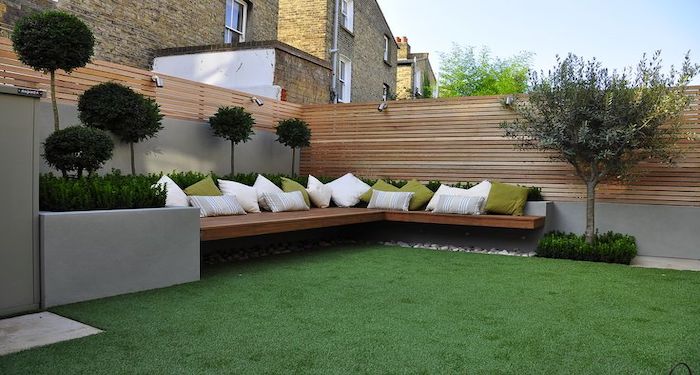
The table below shows the duration it takes for garden waste to be removed based upon its weight.
| Weight of waste | Duration |
|---|---|
| 50 kg | 5-10 minutes |
| 100 kg | 15-20 minutes |
| 250 kg | 25-30 minutes |
| 300 kg | 35-40 minutes |
| 500 kg | 45-50 minutes |
| 600 kg | 55-60 minutes |
| 750 kg | 65-70 minutes |
| 800 kg | 75-80 minutes |
| 1 tonne | 85-90 minutes |
Types of Garden Waste Removal
If all the rubbish in your garden is garden waste or waste generated by gardening, the expenditures will be rather modest. The fee will be higher if you have other items in your garden to dispose of such as old flowerpots, broken furniture, or sheds. You'll also have to pay more to get rid of soil because it's heavy and difficult to move.
Here are a few examples of waste removal services that could be used depending on what type of rubbish you have.
Recycling
Recycling is one of the most environmentally friendly techniques of disposal because it helps to protect the environment. Metals, PVC, PP, LDPE, glass, and a variety of other materials can all be recycled.
By recycling as much waste as you can prevents waste from entering landfills and can often be repurposed into other valuable items. There are many organisations available to help recycle unwanted items.
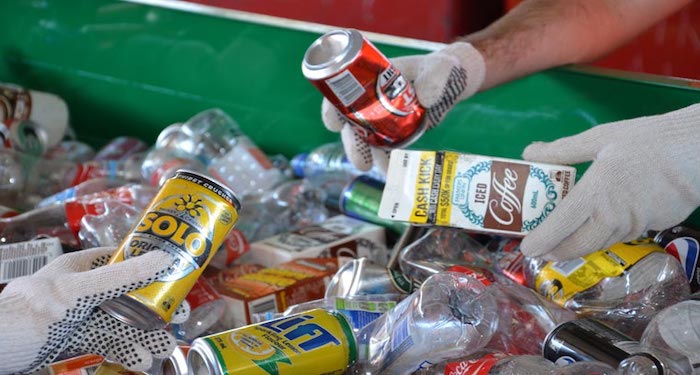
The best part about this waste disposal approach is that it is both cost-effective and environmentally friendly. There are also some recycle schemes available that has the potential for you to earn money from your waste.
Pros:
- Cost-effective
- Easy to do
- Environmentally friendly
Cons:
- None
Brush Chipping
Brush chipping is an efficient way to recycle thick branches, hedge trimmings, and woody garden waste. By feeding this material through a wood chipper, it is shredded into small chips that can be reused in your garden. These chips are perfect for creating mulch paths, insulating soil, or simply reducing the volume of waste you need to dispose of.
Local councils or landscaping companies offer brush chipping services. You can also rent a chipper for the day if you have a large amount of woody debris. This process not only helps clear your garden, but it turns waste into a useful and natural resource.
Pros:
- Reduces bulky waste
- Creates useful mulch
- Environmentally sustainable
Cons:
- Takes time
- Requires specialist equipment
Biological Reprocessing
This is one of the most effective ways to deal with various types of organic waste. Grass clippings, leaves, small praches, vegetable scrapd and prunings make excellent compost or mulch for any garden.
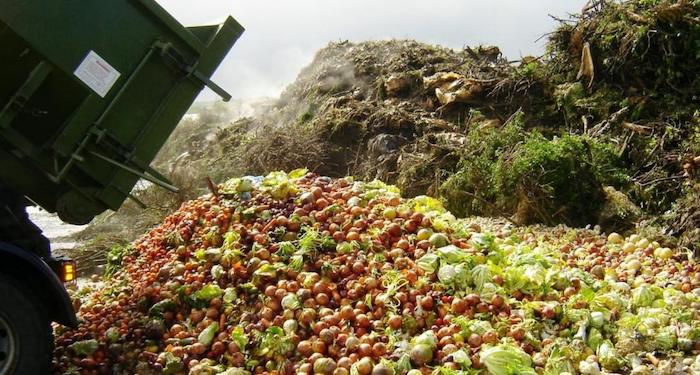
Simply set up a compost bin or pile in a shaded, well drained area of your garden. Add your kitchen and garden waste and turn regulaly for aeration. Once it has turned dark and is crumbly its ready to add back into your garden beds or pots.
Pros:
- Effective
- Eco-friendly
- Enhances the structure of the soil
Cons:
- Required space in your garden
Incineration
This form of waste disposal entails throwing waste materials onto a pile and then burning them. Thermal treatment is another name for this form of waste disposal. Incineration can be done on a large or small scale, and it can be used to dispose of a variety of wastes.
The incineration approach is preferred by most countries with little land. Burning waste items generates energy that can be used to generate heat, electricity, or steam. One disadvantage of this kind of disposal is that it might pollute the air.
Pros:
- Easy to do
- Reduces reliance on landfills
Cons:
- Not good for climate change
- Can produce air pollution and toxic emissions
Landfill
Sending your waste to landfill is one of the most widely used garbage disposal systems in the world. When you hire a skip and fill it this will, in most cases, be transported back to your local landfill to be buried.
Authorities work hard to guarantee that each landfill's design is efficient in terms of sanitisation and land utilisation but the execive amount of rubbish we produce can be troublesome.
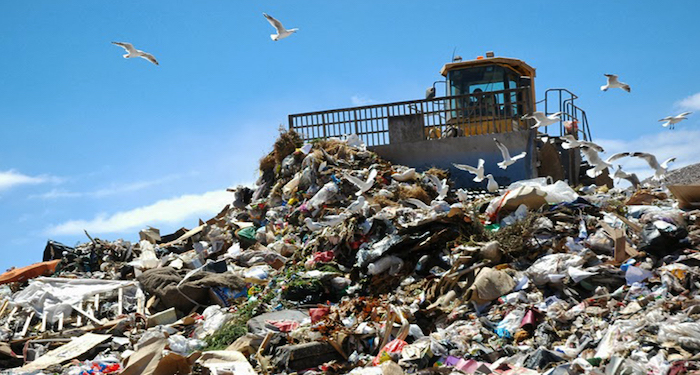
While landfills serve a necessary role in managing non-recyclable and residual waste, recycling and composting are generally more sustainable and environmentally friendly.
Pros:
- Most common
- Widely accessible and established method
- Capable of handling all types of waste
Cons:
- Takes up large areas of land
- Risk of groundwater and soil contamination
- Produces methane, a potent greenhouse gas
- Visually unappealing and can attract pests
FAQs
Q: Can you pay monthly for garden waste removal?
A: Yes, it is very common to be able to pay monthly for garden waste. Most companies allow you to pay them once a month for them to come out and give your garden some TLC.
Q: Do local councils offer garden cleaning services?
A: The old, crippled, or vulnerable may be eligible for garden maintenance assistance from their local government. It is only available if you are physically unable to complete the task and have no other family or friends who could assist you. The service may be charged.
Q: What are the benefits of garden waste removal?
A: Any type of yard trash might be dangerous. As a result of having piles of yard debris laying around, cuts and scratches are common ailments. Its removal will make your house more secure and enjoyable.
It's pointless to have a garden that you can't use. It will appear better and be more fun to use if the rubbish is removed. Getting rid of any waste will also deter any mice or rats.
Q: Do local tips take garden waste?
A: Some municipalities provide a specific garden waste bin and collect it as part of their residential waste collection programme. Garden garbage can be recycled at your local Household Waste Recycling Centre if you don't have this type of pickup service or if your container is full.
Q: What can I put in my garden waste bin?
A: You can usually only put rubbish that is the result of gardening in these bins. Grass clippings, leaves, hedge trimmings, and weeds are examples. To be sure, check with your local municipality, as information varies based on where you live.
Q: What time can you burn garden waste?
A: Bonfires are not governed by any laws. You can have one at any time of the year or day. Except on Bonfire Night, it is considered polite to have bonfires that are blazing no later than dusk.
The current rules prohibit the burning of any garbage that could pollute the environment or affect people's health. Plant-based Garden waste should be the only thing you burn.
Q: Can you use composting for garden waste removal?
A: If you only have green garbage, you might be able to keep it while it composts. This is a great way to dispose of waste in an environmentally friendly manner, while also providing fertiliser for soil and plants.
It's not suitable if you don't have a lot of room, but if you have, and you have the patience to wait (composting can take a year or more), it's worth looking into.
Q: Are landlords responsible for garden maintenance?
A: Garden upkeep responsibilities in rental residences are normally determined by the conditions of the tenancy agreement.
Some landlords may include this service in the contract, implying that they are responsible for regular garden upkeep, while others may not. As a result, it is the tenant's responsibility to look after their garden and, if necessary, hire a gardener.
Q: How much does it cost for regular garden maintenance?
A: Garden upkeep costs vary so widely that estimating a fixed price is difficult. Instead, most gardeners will bill on an hourly basis. However, in London, this rate might range from as little as £15 per hour to as much as £50 per hour.
In addition, most gardeners have a two-hour minimum payment. Gardeners will gladly quote a fixed price rather than hourly rates for larger works.
Q: How to hire a gardener for help with maintenance?
A: Check with local horticultural colleges, garden centres, and nurseries for recommendations of trustworthy gardeners. Garden maintenance gardeners are frequently suggested by word of mouth, and the Gardeners Guild is the best professional organisation representing garden maintenance gardeners.
Before becoming a member of the Guild, gardeners must demonstrate that they have at least one horticultural qualification at Level 2 or higher.

